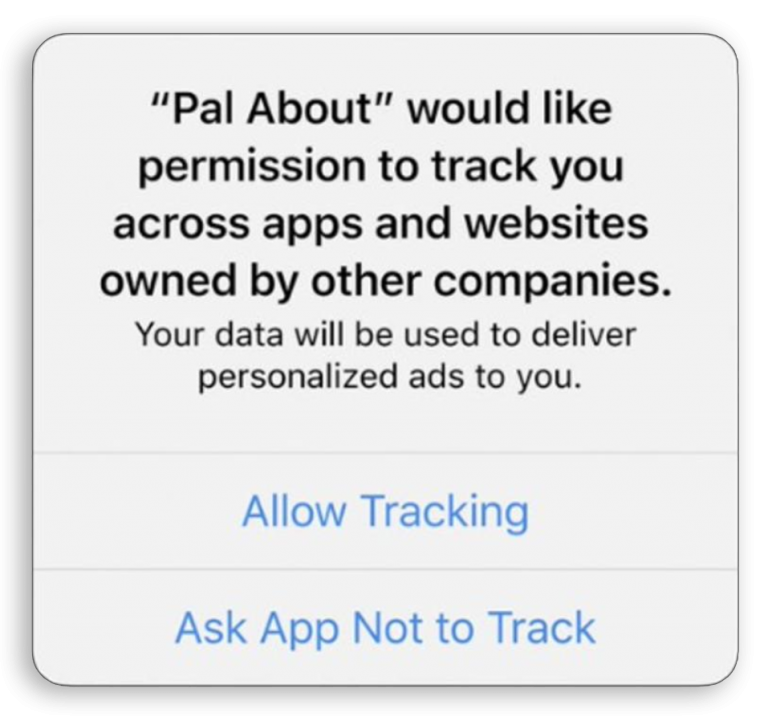This may have come as a surprise to many, although in reality this decision should not be surprising. It's just another step towards the inevitable death of uncontrolled data tracking. The world is moving towards controlled sovereignty of personal data across all platforms and devices, and that is not far off. We invite you to see what changes are expected in iOS 14 and how this will affect the ownership and use of data.
What is IDFA and what can it change?
IDFA is a tool that companies use to determine the attribution of app downloads for mobile ads. Google's version for android devices is called GAID (Google Advertising ID). IDFA allows a company to understand which ad led to loading and where the user saw and clicked on it, which is important for estimating campaign costs. It's like a mobile app equivalent to cookies.
This is usually measured using a third-party attribution solution like Kochava or AppsFlyer. Most importantly, it allows brands to tell mobile ad networks, "find a similar audience."
Currently, downloading implies consent to IDFA, which means that each application can track other applications that you use on your phone, as well as which sites you visited through your mobile browser. In iOS 14, all apps will need to request consent to track your IDFA via a popup.

IOS 14 is slated for release in September, and by October more than half of all iPhones are expected to be upgraded to this operating system. By the way, IDFA can already be disabled, but this requires that the user delves into the settings. Expectations for the number of permissions users will give are very low. According to some commentators, 0-20% of users will agree, but this is also an optimistic forecast. The language used to request such permission is daunting.
Note that Apple is working on launching its own SKAdNetwork attribution system. It is reported that this will allow brands to track the origin of downloads, but without looking at any of the user's personal data. To learn more about iOS 14 and how its innovations will affect tech giants like Google and Facebook, and its impact on retargeting in general, read this Forbes article .
Not the first time app developers have to adjust
Application developers have long assumed where the wind is blowing. An Android 6.0 OS report back in 2015 pointed this out. Android 6.0 has completely changed the nature of app permissions. Prior to its release, it was not possible to choose exactly what permissions you want to grant an Android app. During the installation phase, you either allowed all permissions or stopped the installation. With the advent of Android 6.0 (Marshmallow), users were able to grant individual permissions at the time of the initial launch of the application, or deny all of them if they were not important for the application to work.
But according to the reportSome of the world's most popular apps have made a concerted effort to delay the required updates to collect as much customer data as possible within the three years set by Google. Many of the applications (out of 13,599 analyzed) generated all or a significant portion of their total revenue by selling anonymous third-party data to large data aggregators. And that was only 5 years ago, but the landscape of digital interaction has changed a lot since then.
Fast forward to 2020, when most industry experts agree that the era of seemingly anonymous but personal data, and the targeted advertising they provide, will soon be over.
Permissions and data control go beyond mobile apps
You may have heard earlier this year that Google will stop using third-party cookies for Chrome. Safari and Firefox browsers already block them. We all know about the General Data Protection Regulation (GDPR), but that was just the beginning. From now on, the collection and use of personal data will only be more strictly regulated. Although the legislation is quite clear and many versions appear around the world, this is not enough. Privacy by Design is a long-term perspective. We have already written about this concept.previously in the context of mobile marketing. This refers to consent and consumer control inherent in the data collection and use systems themselves. We must be prepared that very soon it will become impossible to play freely with consumer data.

–
It is not hard to imagine a scenario in the very near future when it will be impossible to interact with potential clients and current clients about anything without their explicit and freely expressed permission.
Brands themselves must take responsibility and advocate for consumer rights, not just respond to changing operating system or legal requirements.
Therefore, Xtrempush recently integrated a customer data platform into its omnichannel and personalization hub. We want to enable our customers to seamlessly integrate their data collection and activation strategies based on privacy and consent.
Xtrempush empowers brands to openly collect valuable zero party data) data using the customization centers on the site and in the app. This can be anything from your preferred channel or content to the best time of day to connect. This is a good opportunity to build trust between the brand and the consumer by giving both of them what they want; a win-win personalized and relevant experience.
It's time to take responsibility for how your brand collects, aggregates, and uses customer data. Do not hesitate to contact us for advice on these matters.